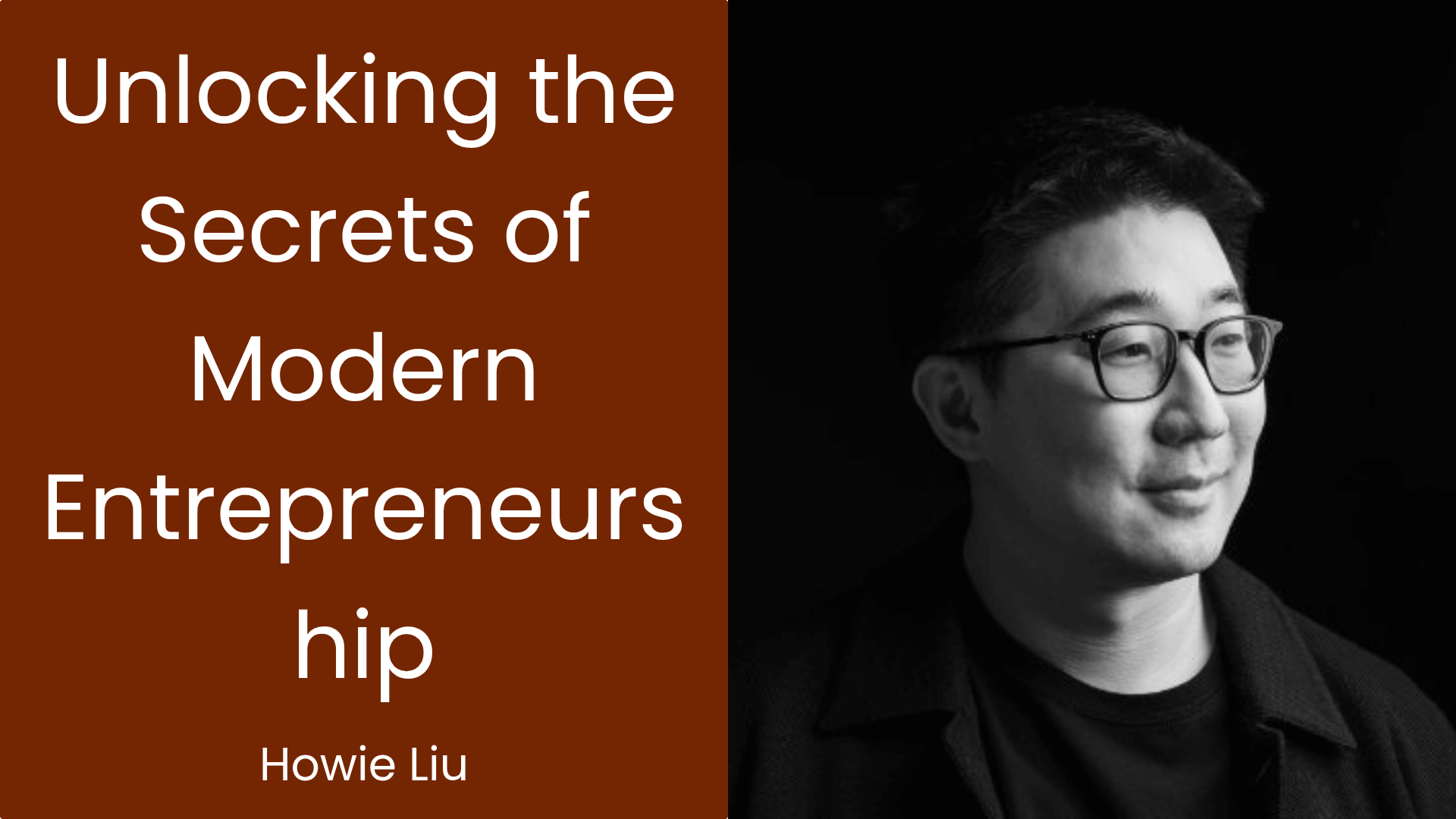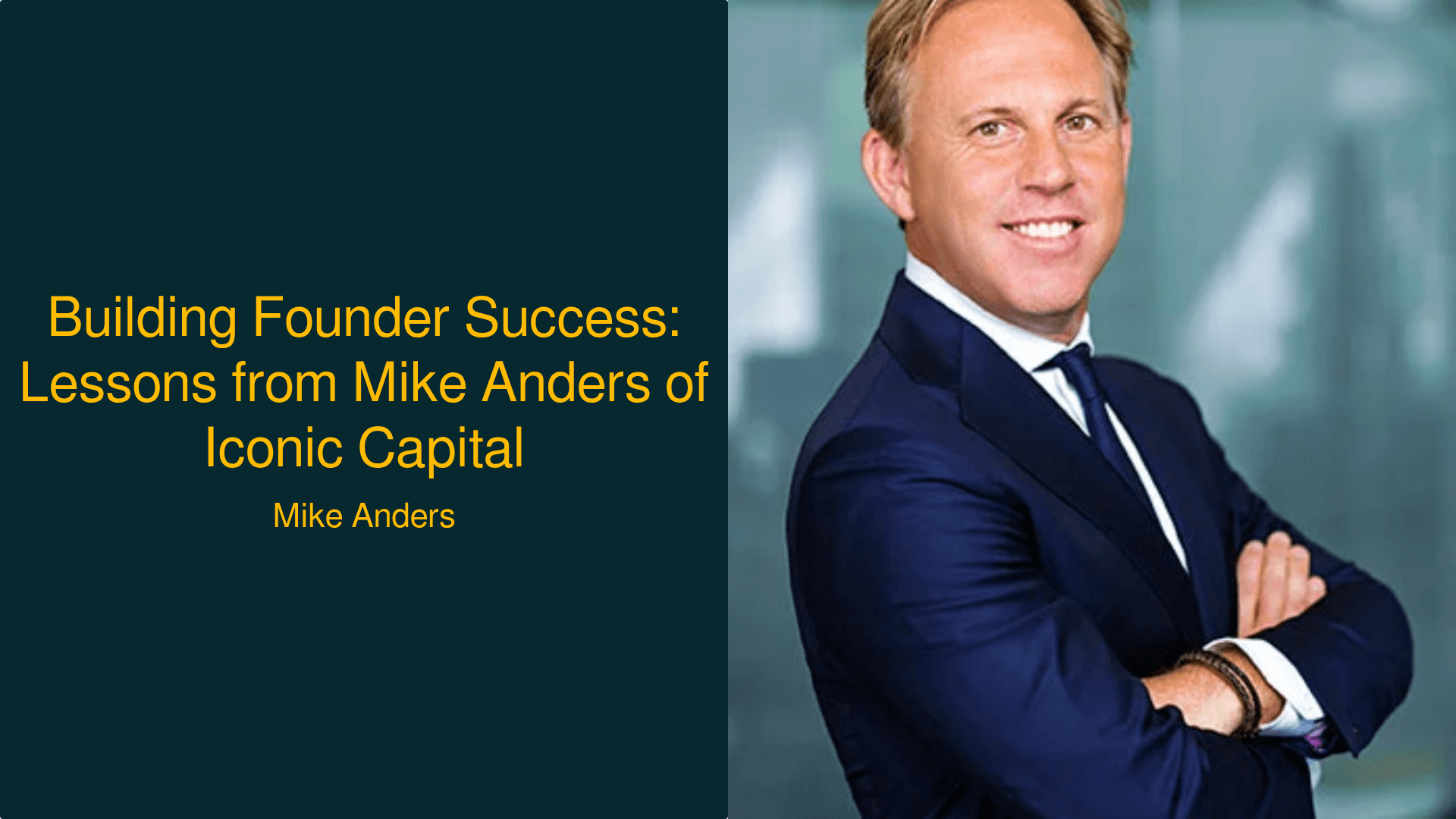Founder Success Insights from Howie Liu: Strategies for the AI Era
Discover actionable strategies and insights from Howie Liu on achieving founder success in the AI-driven business landscape.

Founder Success Insights from Howie Liu: Strategies for the AI Era
In today’s rapidly evolving business landscape, the role of founders is being redefined, particularly with the rise of AI technologies. Howie Liu, the co-founder and CEO of Airtable, exemplifies this shift, having successfully navigated his company through numerous challenges over the past 13 years. In this enlightening interview, Liu shares his insights on what it takes to achieve founder success in this new era. From embracing AI tools to restructuring teams for faster innovation, Liu provides actionable strategies that can help entrepreneurs thrive. This article explores key takeaways from our conversation, detailing frameworks and real-world applications that can empower founders to adapt and succeed.
Embracing AI for Founder Success
If you were literally founding a new company from scratch with the same mission, how would you execute on that mission using a fully AI native approach? — Howie Liu
Why it matters: The integration of AI into business operations is no longer optional; it is essential for staying competitive. Companies that leverage AI effectively can streamline processes, enhance customer experiences, and drive innovation. Liu’s perspective underscores the urgency for founders to adopt an AI-first mindset, as it allows them to reimagine their business models and operational strategies.
How to Integrate AI into Your Business
- Identify key areas of your business that can benefit from AI, such as customer service, data analysis, or product development.
- Research and select AI tools that align with your business needs and budget.
- Allocate time for your team to experiment with these tools, encouraging a culture of exploration and play.
- Regularly evaluate the impact of AI on your operations and iterate on your strategies based on feedback.
- Share successes and learnings within your organization to foster a collaborative approach to AI integration.
The Importance of a Fast-Thinking Team
We reorged to have a fast thinking group and a slow thinking group, allowing our AI investments to significantly accelerate. — Howie Liu
Why it matters: Liu’s restructuring of Airtable into fast and slow thinking groups highlights the necessity of agility in today’s business environment. Fast-thinking teams can rapidly prototype and deploy AI solutions, while slower teams ensure quality and strategic alignment. This dual approach enables companies to innovate quickly while maintaining a solid foundation.
How to Build a Fast-Thinking Team
- Assess your team’s current structure and identify areas for improvement.
- Create distinct teams focused on rapid experimentation and those focused on long-term strategy.
- Foster a culture of trust and collaboration between the two teams to share insights and feedback.
- Implement regular check-ins to evaluate progress and pivot strategies as necessary.
- Encourage team members to take ownership of their projects, promoting accountability and innovation.
Cultivating a Playful Mindset in Product Development
If you want to cancel all your meetings for like a day or for an entire week and just go play around with every AI product that you think could be relevant to Airtable, go do it. — Howie Liu
Why it matters: Encouraging experimentation and play within teams can lead to unexpected breakthroughs and creative solutions. Liu emphasizes that by allowing team members to explore AI tools freely, they can discover new ways to enhance products and services, ultimately benefiting the company.
How to Foster a Playful Environment
- Designate specific days or times for team members to explore new tools without the pressure of deliverables.
- Create a shared space where team members can showcase their experiments, fostering a sense of community and collaboration.
- Provide resources and materials that encourage exploration and creativity.
- Recognize and reward innovative ideas that emerge from these playful sessions.
- Ensure that leadership actively participates in and endorses this playful mindset.
Learning from Setbacks and Challenges
Very, I mean, basically none of it was true. And I think the more surprising thing was just like this person has been tweeting a bunch of spicy takes that are not substantiated by real data. — Howie Liu
Why it matters: Liu’s experience with public misconceptions about Airtable serves as a reminder that setbacks and challenges are part of the entrepreneurial journey. By addressing these challenges head-on and maintaining transparency, founders can build trust with their stakeholders and stakeholders.
How to Handle Setbacks Effectively
- Acknowledge the setback openly with your team and stakeholders.
- Analyze the situation to understand the root cause of the issue.
- Develop a transparent communication strategy to keep all parties informed.
- Implement changes based on feedback and insights gathered during the analysis.
- Focus on rebuilding trust and confidence through consistent follow-up and improvement.
The Role of Founders in Product Innovation
You can’t just coast on scaling up go to market around the product forever. You gotta keep innovating in the product. — Howie Liu
Why it matters: Liu emphasizes the critical role that founders play in driving product innovation. By staying engaged and involved in product development, founders can ensure that their companies remain relevant and competitive in a rapidly changing landscape.
How Founders Can Drive Product Innovation
- Dedicate time each week to engage directly with product teams and understand their challenges.
- Stay informed about industry trends and emerging technologies that can impact your business.
- Actively participate in brainstorming sessions and encourage team members to share their ideas.
- Be willing to experiment with new ideas and approaches, even if they diverge from traditional practices.
- Create a culture of innovation by recognizing and rewarding creative thinking within your team.
Conclusion
In conclusion, Howie Liu’s insights on founder success in the AI era provide a roadmap for entrepreneurs navigating the complexities of modern business. By embracing AI, fostering a playful mindset, and maintaining a hands-on approach to product innovation, founders can not only adapt to change but thrive in it. The lessons learned from Liu’s journey at Airtable resonate deeply within the entrepreneurial community, reminding us that success is not just about the destination but the continuous journey of learning, experimenting, and growing. As we move forward, let us carry these insights with us, empowering ourselves and our teams to achieve greatness in the ever-evolving landscape of business.


